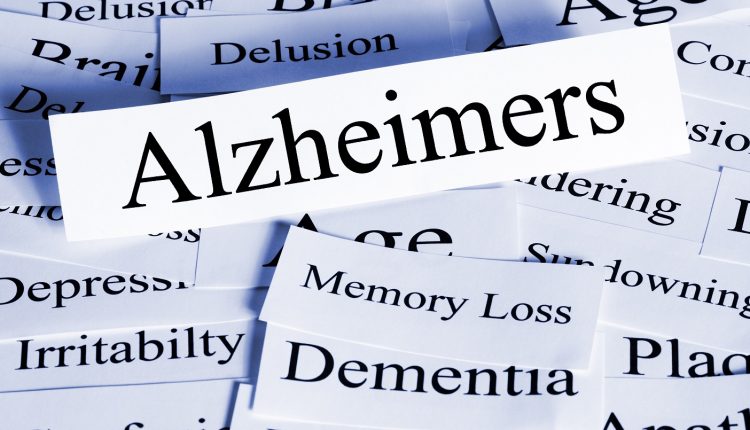
Early Alzheimer’s Diagnosis: The Role of Cognitive Tests
Alzheimer’s disease is a progressive neurodegenerative disease that leads to memory loss, cognitive decline, and, ultimately, independence loss. Despite the fact that Alzheimer’s has no cure, early diagnosis plays a critical role in managing the disease’s symptoms and improving quality of life. Cognitive tests for Alzheimer’s and the importance of early Alzheimer’s diagnosis are discussed in this article.

Contents
Recognizing the Value of Early Alzheimer’s Diagnose
The early diagnosis of Alzheimer’s disease empowers individuals and their caregivers to take proactive measures to manage the condition. When healthcare professionals identify the disease at an early stage, they can slow its progression and optimize treatment. The advantages of early diagnosis include:
Early Intervention for Optimal Treatment
A timely diagnosis allows healthcare providers to provide appropriate treatment options. It is possible to slow down cognitive decline and improve overall well-being by implementing medications, lifestyle modifications, and non-pharmacological approaches quickly. Treatment for Alzheimer’s can extend the quality of life of individuals for a longer period of time if received in a timely manner.
Read more: Lecanemab Approved for Early Alzheimer’s Treatment
Access to Support Services and Clinical Trials
Early Alzheimer’s diagnosis allows individuals to access support services and clinical trials. In addition to providing emotional and practical support for patients and their families, support groups, counselling, and caregiver assistance programs also provide practical assistance. Additionally, early diagnosis allows patients to participate in clinical trials and research studies, which could lead to new therapies and breakthroughs in Alzheimer’s care.
Reducing Misdiagnosis and Preventing Other Complications
Getting diagnosed early reduces the chance of misdiagnosis and complications. The symptoms of Alzheimer’s can overlap with depression or certain medication side effects, leading to misdiagnosis and delayed treatment. Identifying Alzheimer’s early with comprehensive evaluations and cognitive tests helps healthcare professionals avoid misdiagnoses, provide appropriate interventions, and prevent complications.

Cognitive Tests for Early Alzheimer’s Diagnosis
A cognitive test can help healthcare professionals detect cognitive impairments early on in Alzheimer’s disease by assessing cognitive functioning and identifying possible symptoms. Cognitive tests for Alzheimer’s are crucial to diagnosing the condition and differentiating it from normal cognitive changes associated with aging. Cognitive tests are crucial for early Alzheimer’s detection.
Assessing Memory and Recall Abilities
One of the most prominent symptoms of Alzheimer’s disease is memory loss. Healthcare professionals can measure cognitive decline through cognitive tests targeting memory and recall abilities. Depending on the test, you may be asked to recall information, recognize familiar faces or objects, or perform memory-related tasks. Early Alzheimer’s diagnosis is possible through cognitive tests that assess memory and recall.
Evaluating Language and Communication Skills
Alzheimer’s disease often leads to impairments in language and communication. Cognitive tests for Alzheimer’s measure a person’s ability to understand, comprehend, and express language. You may be asked to name objects, follow instructions, or engage in conversation during these tests. Through cognitive tests, language and communication difficulties can be detected early in Alzheimer’s disease.
Assessing Attention and Executive Functioning
In addition to affecting attention, concentration, and executive functioning-the ability to organize, plan, and solve problems-Alzheimer’s disease can also affect memory. A cognitive test evaluates these cognitive domains by assessing attention spans, mental flexibility, and decision-making skills. You can detect Alzheimer’s early with cognitive tests that look for attention and executive function problems.
Identifying Visuospatial and Problem-Solving Deficits
It is common for Alzheimer’s patients to suffer from visual impairments, such as difficulties with spatial perception and navigation. In cognitive tests, you copy shapes, solve puzzles, or navigate mazes to test your visual ability. Detecting visuospatial deficits early can help diagnose Alzheimer’s earlier.
Tracking Cognitive Decline over Time
Healthcare professionals can monitor cognitive changes over time by administering cognitive tests regularly. Assessing your cognitive function at baseline and then periodically can help you spot signs of accelerated cognitive decline. The longitudinal approach makes it possible to detect and intervene early in Alzheimer’s disease.
Our top suggestion: Alzheimer’s App
With Alzheimer’s App, you can determine whether you’re at risk of Alzheimer’s. This test detects Alzheimer’s and dementia symptoms at their earliest stages. The test involves a series of cognitive exercises and tasks to evaluate your cognitive abilities. Users of all ages and backgrounds will find the test user-friendly.
The test results will tell you a lot about your cognitive abilities. This information will also suggest activities and exercises to strengthen and maintain your cognitive function, in addition to identifying areas for improvement. With the Alzheimer’s Test, you can track and compare your previous results over time so that users can track cognitive skills over time.
Final Words
Alzheimer’s early diagnosis makes it easier to intervene, get support, and take part in clinical trials.
Using cognitive tests for Alzheimer’s to assess memory, language, attention, executive functioning, and visuospatial abilities helps detect Alzheimer’s disease early. As a result of these tests, healthcare professionals are able to identify cognitive impairments associated with the disease early on and optimize treatment strategies accordingly. Integrating cognitive tests into routine screenings can improve early diagnosis of Alzheimer’s and patient quality of life.
It’s amazing how drawing a clock and counting backwards can help diagnose Alzheimer’s and dementia, even before symptoms appear.
It truly is. I was surprised to learn that some people can be unsure about what day it is, without any confusion.
Thanks for the helpful information.